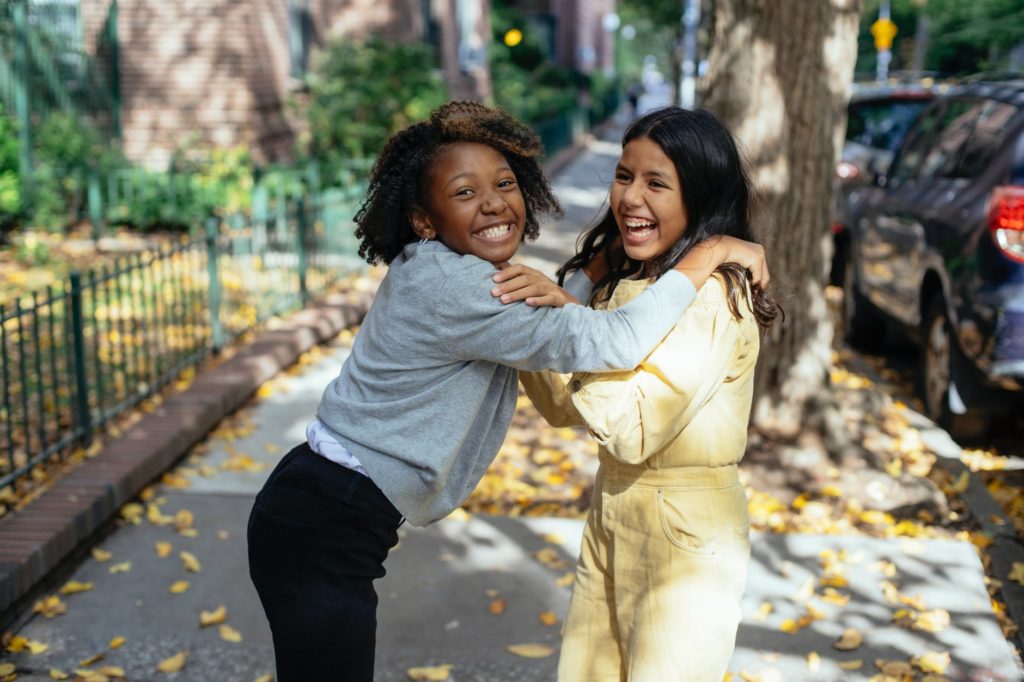Catching up from COVID, by Dr Naomi Fisher

Children’s long term well-being depends on being given the time to make sense of their experiences.
What will we want to do when finally this pandemic is over, and restrictions are lifted? See people we love, go to places we’ve missed, buy non-essential items in shops, find a crowd and just marvel at how many different people are in one place? Go out to a café, have a drink in the evening, go to a Pilates class – there are so many things we haven’t done this year.
Or perhaps, go and sit in a classroom and try to get through more curriculum. Try to memorise more information and complete more worksheets. It’s not top of my list, that’s for sure. However, that’s what the government has in mind for our children. Longer hours, shorter holidays, more input. All in an attempt to fill them up with the information that they apparently missed, as if they were empty buckets. Of course what this means is more time for children under restrictions. More time doing what you’re told, and less time to play and chat. And more pressure to ‘catch up’.
“More time doing what you’re told, and less time to play and chat. And more pressure to ‘catch up’. Sounds like a recipe for depression and anxiety to me.”
Sounds like a recipe for depression and anxiety to me. When something enormous happens in our life, we need time to make sense of it. We need to talk to other people, we need space to be by ourselves – we might need time to listen to music or make things, to be creative or just to sit and think. Children need time to play. We need time to express our emotions and come to terms with them.
If we don’t have that time, then we store up problems for the future. We might appear to be getting on fine, but then we start having panic attacks, or waking up in the night in cold sweats. We might do okay as long as we are busy, but the moment we stop, we start to cry.
I know this because I’m a trauma therapist. People come to see me decades after terrible things happen to them. They say things like ‘I just got on with my life’ or ‘I went straight back to school and we never talked about what happened’. They might have apparently managed to keep going, but then something happens and their ability to cope disappears. Suddenly they can’t sleep, and their life falls apart.
This is what we risk for our children if we push them straight back into extended hours at school. We risk creating a generation whose experiences have never been addressed, who have never recovered and whose academic skills have been prioritised over everything else. Many of them might appear to cope in the short term, but they will have pushed everything down rather than made sense of their experiences.
We have a chance to avoid this.
Now is the time when we could plan a different way back to normality, one which doesn’t involve extra restrictions on our children. In order to build resilience, our children need time to play. They need time to talk about what has happened and to rebuild the links they have lost in this year. They need time to be with other people, freely interacting, and to feel valued as people.
Now is the chance to do something differently. Let’s value our children as full people, and stop trying to fill them up with knowledge. Let’s listen to their experiences and opinions on what has happened to them, and help them chart a way forwards. Let’s take childhood seriously, and give them the chance to make sense of the unique strangeness that this pandemic has been for us all. Give them the time to play.
Dr Naomi Fisher is a clinical psychologist and author of Changing Our Minds: How children can take control of their own learning. You can read our interview with her in our Voices section where you can find more articles that she has written.

